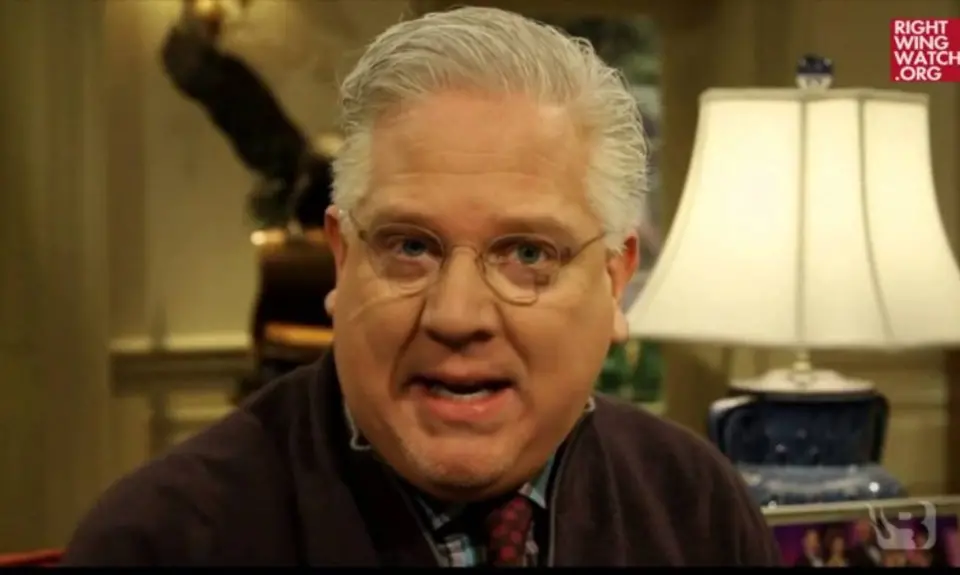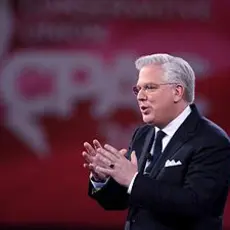On his radio program today, Glenn Beck urged listeners to tune in to his television program tonight because he is going to expose muckraking novelist Upton Sinclair as an unmitigated liar and his 1906 book "The Jungle" as a total fabrication. But based on the information Beck provided on the radio today, it appears that it is Beck himself who is just making things up out of whole cloth.
As Beck reported it, Sinclair totally made up the stories of harsh, dangerous and unsanitary conditions in the meatpacking industry contained in "The Jungle" and even admitted as much directly to President Theodore Roosevelt. Beck claimed that Sinclair actually wrote a letter to his own attorney admitting that his book was "completely false and knowingly false" at the time that he was writing it.
Beck said that it is important to reveal the truth about Sinclair's novel because it gave rise to the Food and Drug Administration, which was "the beginning of the progressive movement." He set about attempting to do reveal this "truth" by claiming that it was a member of his listening audience who purchased this letter at an auction and "uncovered the truth about Upton Sinclair's 'The Jungle'" and made the information public on Beck's radio show a few years ago, but "not one story was ever written about it" because nobody in the media had the courage to expose Sinclair's fraud.
Beck said that Sinclair went to Colorado to conduct research for "The Jungle," only to find that none of the things he had been claiming about the meatpacking industry were true and so he went back to his hotel room in Denver and wrote a letter to his attorney admitting as much, urging him to keep the letter secret and to only release it after Sinclair's death.
The relevant portion of the broadcast begins around the 26:15 mark in the following clip:
Literally none of what Beck claimed is true.
What really happened is that, in 1997, a rare book collector found a letter written by Sinclair to his attorney, John Beardsley, in 1929 about the research he had conducted for his novel "Boston," which was about the 1927 conviction and execution of anarchists Nicola Sacco and Bartolomeo Vanzetti, whom Sinclair and many others believed had been framed.
In the letter, Sinclair recounted having met Sacco and Vanzetti's lawyer, Fred Moore, in Denver and reported that Moore told him that Sacco and Vanzetti were indeed guilty of the crimes for which they were executed. This information, Sinclair admitted, "naturally sent me into a panic" and he initially decided that he could not write the book, until he concluded from discussing the issue with others that Moore was unreliable.
Sinclair had already announced that he was writing about the case and worried that dropping the novel "would have been universally said and believed that it was because I had decided the men were guilty," which he did not believe because, he said, "I did have first hand knowledge of the framing of testimony" against them.
Eventually, Sinclair concluded that "I would take my stand on the point that the men had not been proved guilty, and that their trial had not been fair. That was all that the law required in order to prevent the execution, and it was all that my thesis required." He insisted that "in the end I don't really know any more about the thing than I did in the beginning, and can only take my stand as I did in 'Boston,' upon the thesis that men should not be executed upon anybody's rumors."
Sinclair closed the letter by urging Beardsley to "stick it away in your safe, and some time in the far distant future the world may know the real truth about the matter."
Beck interviewed the book collector who found this letter on his radio show back in 2014, but now seems to be totally confused about its contents.
Contrary to Beck's claims, this letter in question was not about "The Jungle" at all and was, in fact, written decades after that book was published. Nor does the letter contain admissions from Sinclair that the conditions described in "The Jungle" were totally fabricated, but rather simply reveals that a source he deemed unreliable had provided him with information that complicated the thesis of an entirely different novel that he wrote decades later.





